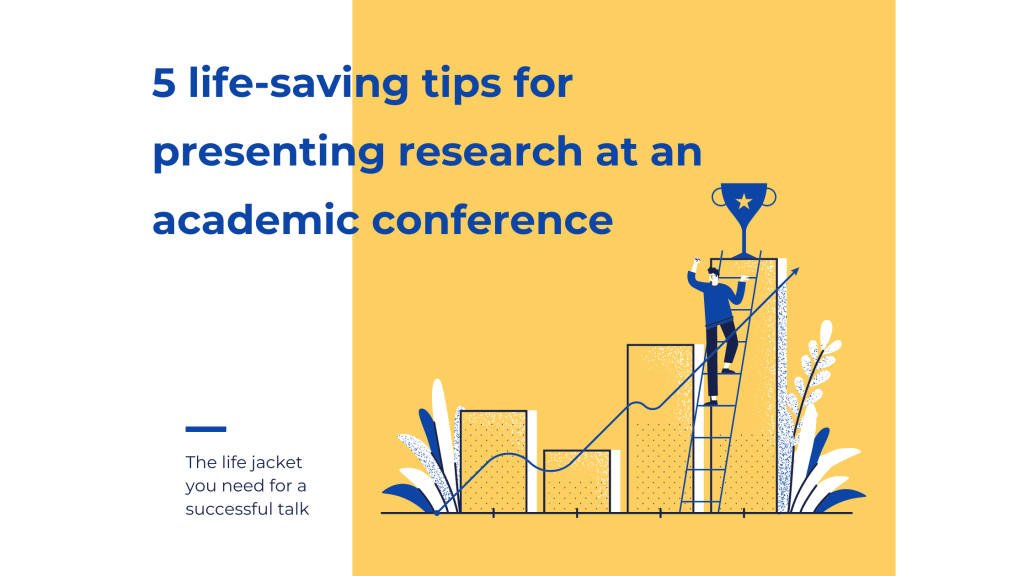If not well prepared, presenting a paper at a research conference can be a stressful activity. Consider these 5 effective tips on how to present a paper at an academic conference to help you shine on a big day. Use it as a life jacket to get you through the ‘stormy waters’ of presenting a research paper.
Tip #1: Write for a listener, not for a reader
A conference paper isn’t the same format as a journal article. Keep in mind that the audience is going to listen to your speech, not read your text. It has been scientifically proven that listeners have smaller attention spans than readers.
After all, no one likes to listen to long, sloppy monologues. Laconic and concise sentences are gold. Your speech written in a breezy matter-of-fact manner will certainly win the audience.
Conference presentation format also matters a lot: an attention-grabbing intro, a well-informing body, and a clear conclusion will guide your audience through the talk. In case you use a lot of unknown technical terms, make sure you provide explanations to them, as well as a brief recap of the main points when required.
Moreover, your own captivating and unique style of writing can always give a special touch to the presentation.
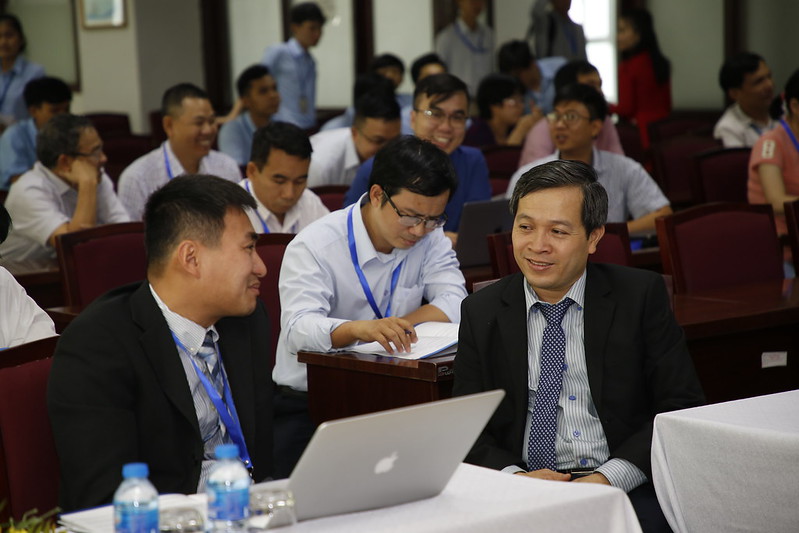
Tip #2: Clearly articulate your message
Find a conference presentation example that looks like a masterpiece to you and try to recreate something similar while writing your script. But bear in mind that the best presenter and presentation techniques cannot help if the message is vague. Answer the question to yourself before even starting to write: what is the key message of this talk?
You can even write it as the first sentence of your speech on a sheet of paper if that helps. That would be your main storyline. The message should be very clear and easily understood by people hearing it for the first time, and most importantly – you should feel like you can talk about the subject on any occasion.
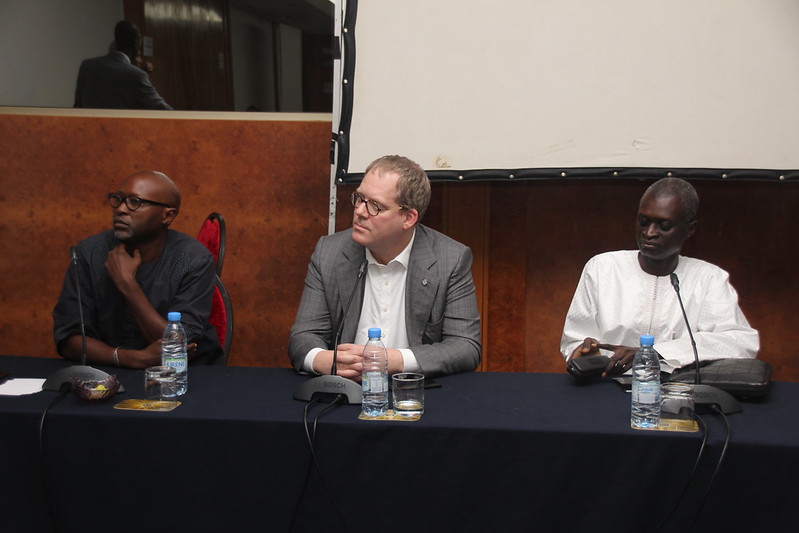
Tip #3: Rehearse backward and forward
Once you are ready with your academic conference presentation slides, practice, practice, and practice. If you don’t feel confident speaking publicly, you can even prepare a script for practicing your monologue. This will help you get rid of the fear to forget some of the crucial parts of your presentation and look professional. Fears are vital, but it’s always better to get rid of them if there’s an opportunity. In your case, it’s all about the reputation: the more confident you look during your presentation, the more credits of trust you earn from your fellow scientists. If unsure how to start a conference presentation, here’s an ultimate lifesaver: you begin with a short intro about your faculty/institution and yourself, a few sentences about the topic of your research, and the key question that you are raising.
We recommend that you read through your script at least 5 times and rehearse your talk multiple rounds in front of your family or friends.
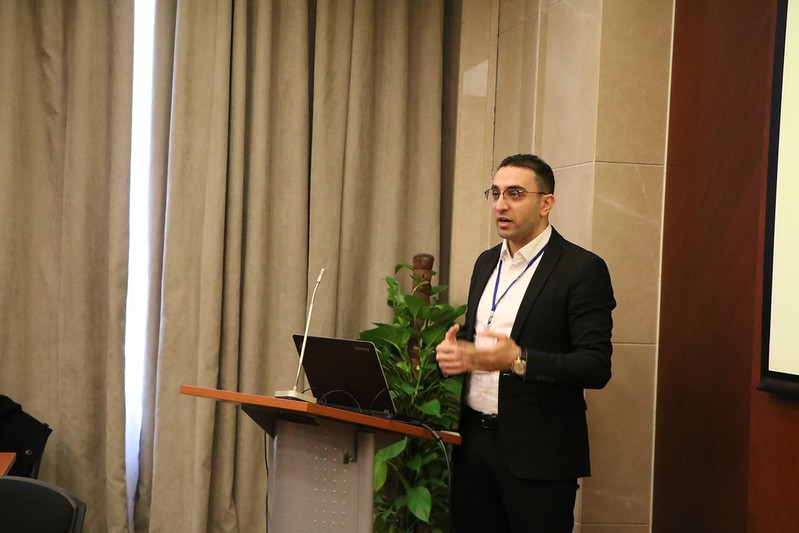
Tip #4: Get somebody to listen to you
Try to read your conference presentation out loud to keep to the desired time frame on the big day. Reading in your mind won’t work simply because presenting live in front of an audience takes longer, as it also includes non-verbal communication, pauses, etc. Ask your friend to listen to the way you perform multiple times, or at least present it in front of the mirror. It will surely boost your confidence and will make you more familiar with the content.
There’s also an alternative: record your practice sessions with your smartphone so that you can view them later and detect the field for improvements. However, do not read out loud your research paper ppt too much before the actual presentation. Otherwise, you risk losing your voice or sounding tired during the actual session.
It is also really important to hear the feedback on your conference presentation. And who can tell it more honestly than a friend, family member, or colleague?
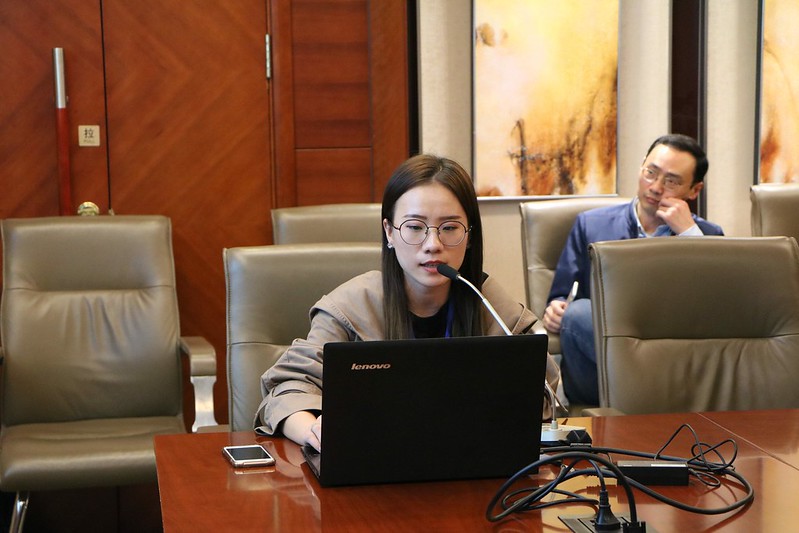
Tip #5: Anticipating questions means winning the day
The common fear young people in academia have is getting the questions from the audience after the research presentation rather than the actual talk. Here’s the solution: if you don’t understand the question simply ask to rephrase it. If you don’t know the answer to the question, just say that you are planning to explore that angle in the nearest future, but haven’t done it yet. If there are no questions, then you can talk a little about the defects of the paper. And don’t be upset if there are no questions even if you asked about it several times.
What’s more, asking questions and making comments in conference Q&A sessions can be also challenging for novice academics. The recent research of English for Specific Purposes says that discussants not only try to seek answers or exchange ideas with the presenter but also endeavor to project a positive image of themselves by asking the ‘right’ questions in the ‘right’ way. However, many aspiring academics fear looking foolish because of unfocused and convoluted questions.
If you decide to present your research at one of the EAI conferences, you might want to hear back from the audience. Not only it could help you to develop as a presenter, but also gain a reputation. We designed EAI Compass as a free service for the conference registrants to make their on-site or online experience even more social. The key features allow to navigate in the program, read the full papers, download proceedings, but also connect with other researchers and vote for the best presentations.
Following these tips will help you cope with unproductive anxiety and will make you look confident in front of your academic peers from all over the world. Lastly, don’t forget what you want to achieve with your talk, and always keep your audience in mind. It will give you an overview of the amount of time needed to prepare your best script. Good luck with your next research presentation!

